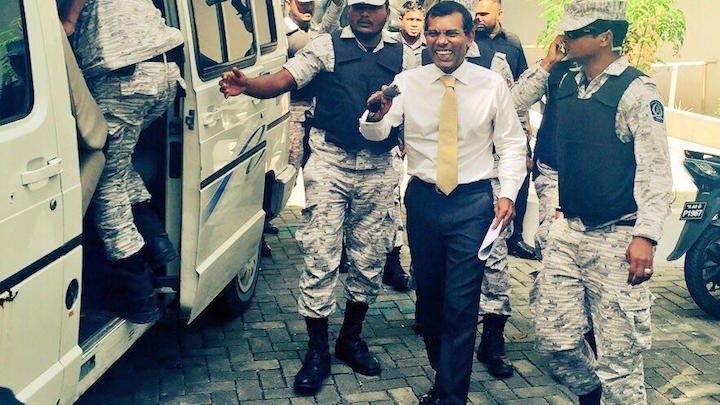Ex-president brought to Malé
Former President Mohamed Nasheed was brought to Malé this afternoon to attend a dispute resolution meeting at the civil court in a lawsuit filed by his brother against the prisons authority over denial of visiting rights. Ahmed Nazim Sattar had sued the Maldives Correctional Services over what he contends was an arbitrary decision to limit Nasheed’s weekly family visits to his parents, wife and children.

15 Oct 2015, 09:00
Former President Mohamed Nasheed was brought to Malé today for a dispute resolution meeting in a lawsuit filed by his brother against the prisons authority over denial of visiting rights.
Ahmed Nazim Sattar had sued the Maldives Correctional Services at the civil court over what he contends was an arbitrary decision to limit Nasheed’s weekly family visits to his parents, wife and children.
The court arranged the dispute resolution meeting to see if the parties could reach a settlement without a trial.
Nazim told the press after today’s meeting that the court has scheduled a second meeting for 1:30pm on Sunday after the parties were unable to resolve the dispute. Lawyers from the attorney general’s office represented the MCS.
Become a member
Get full access to our archive and personalise your experience.
Already a member?
Discussion
No comments yet. Be the first to share your thoughts!
No comments yet. Be the first to join the conversation!
Join the Conversation
Sign in to share your thoughts under an alias and take part in the discussion. Independent journalism thrives on open, respectful debate — your voice matters.




